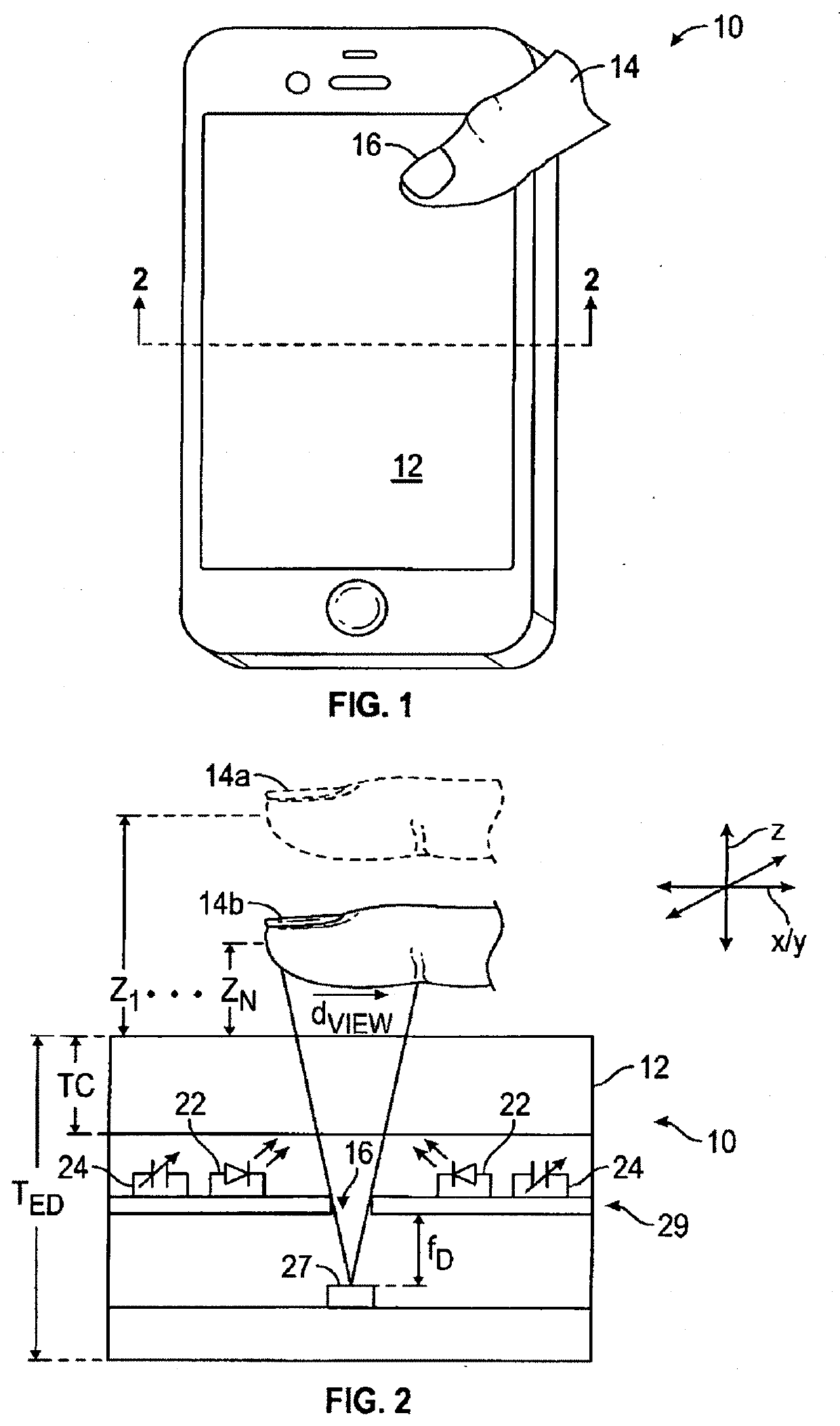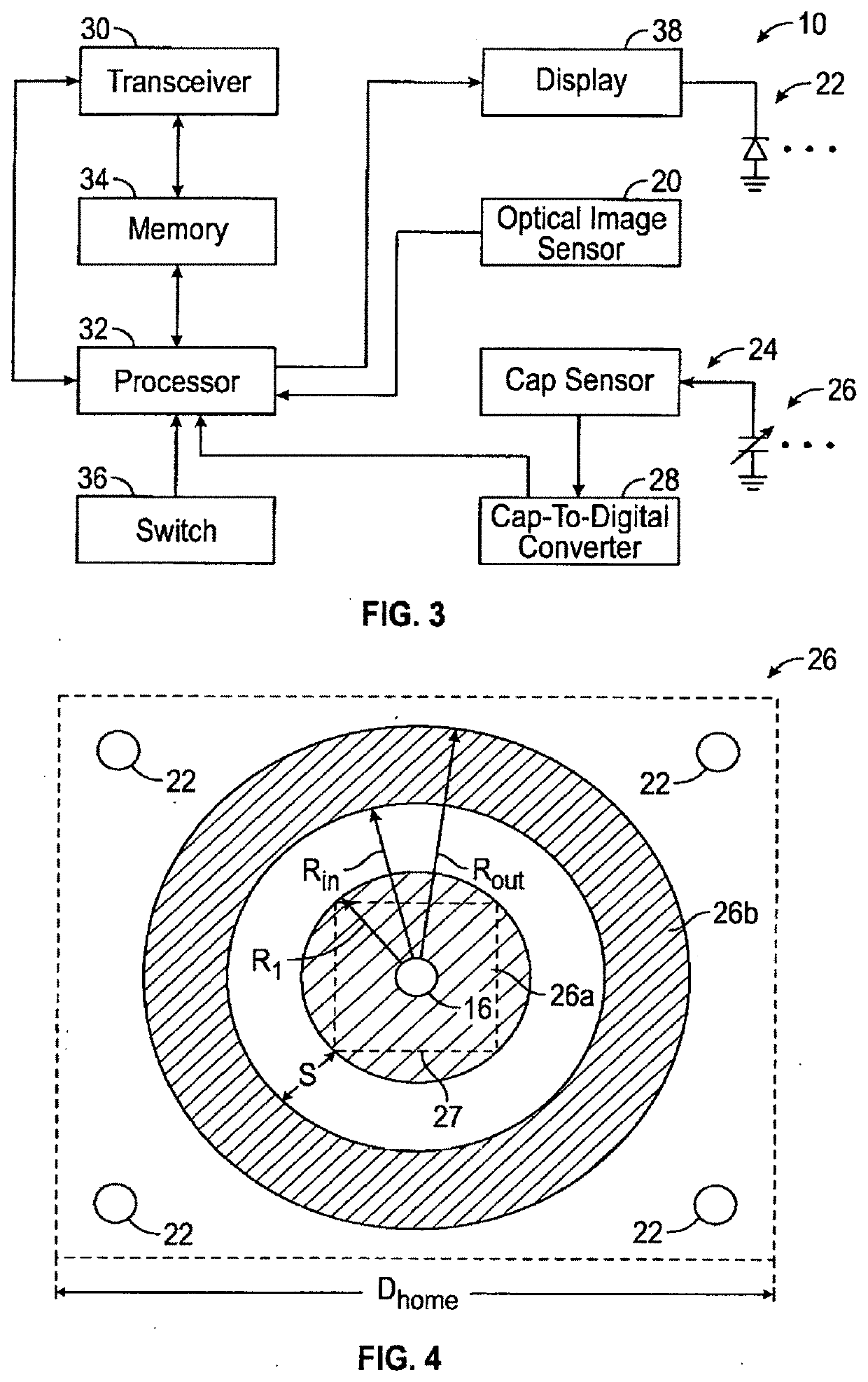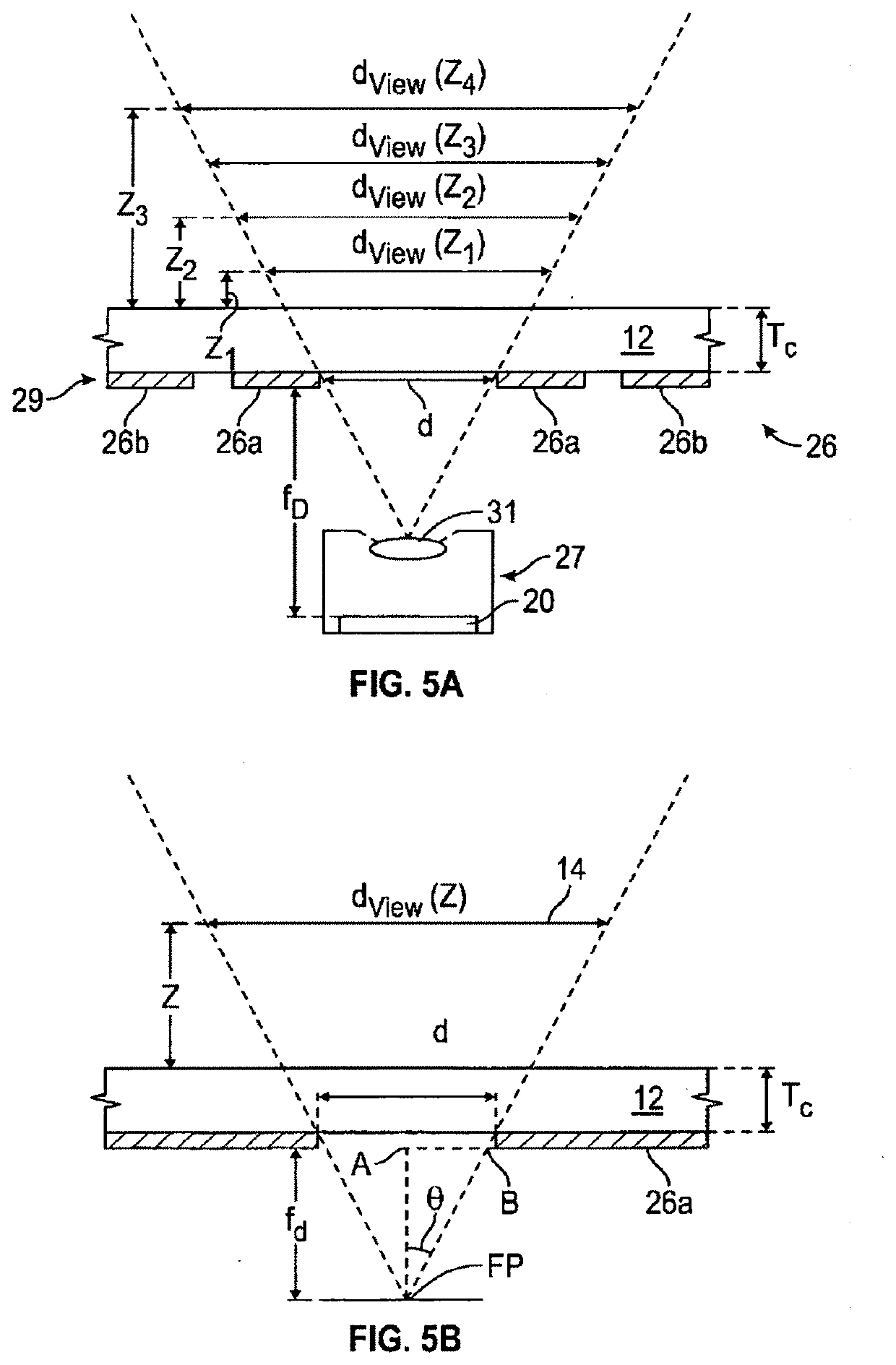Electronic device and method for non-contact capacitive and optical pin hole fingerprint detection
a capacitive and optical fingerprint detection technology, applied in the field of electromechanical devices, can solve the problems of insufficient capacitive sensitivity, significant challenges in using the mechanisms involved in fingerprint detection, and inability to achieve capacitive readings, and achieve optimal triggering of optical sensors. , the effect of maximum capacitive readings
- Summary
- Abstract
- Description
- Claims
- Application Information
AI Technical Summary
Benefits of technology
Problems solved by technology
Method used
Image
Examples
Embodiment Construction
[0037]Turning now to the drawings, FIG. 1 illustrates an electronic device 10. In particular, electronic device 10 is a low profile, relatively small size, preferably portable electronic device. Popular such electronic devices include ones that are relatively slim, and less than, for example, 5-8 mm in thickness. A mobile phone or a tablet are examples of such electronic devices shown having a cover 12 configured over a touch-sensitive display. The display, as well as the cover are on a front-side surface of electronic device 10. The display preferably includes a Graphical User Interface (GUI) that can respond to finger-touch. For example, if the electronic device 10 is a mobile phone, or “smart” phone, there are objects on the display allowing a user to place a cellular call, receive a call, send and receive data, and launch application programs, for example.
[0038]The cover placed over the display is preferably transparent, translucent and / or transmissive to light, both visible and...
PUM
 Login to View More
Login to View More Abstract
Description
Claims
Application Information
 Login to View More
Login to View More - R&D
- Intellectual Property
- Life Sciences
- Materials
- Tech Scout
- Unparalleled Data Quality
- Higher Quality Content
- 60% Fewer Hallucinations
Browse by: Latest US Patents, China's latest patents, Technical Efficacy Thesaurus, Application Domain, Technology Topic, Popular Technical Reports.
© 2025 PatSnap. All rights reserved.Legal|Privacy policy|Modern Slavery Act Transparency Statement|Sitemap|About US| Contact US: help@patsnap.com



